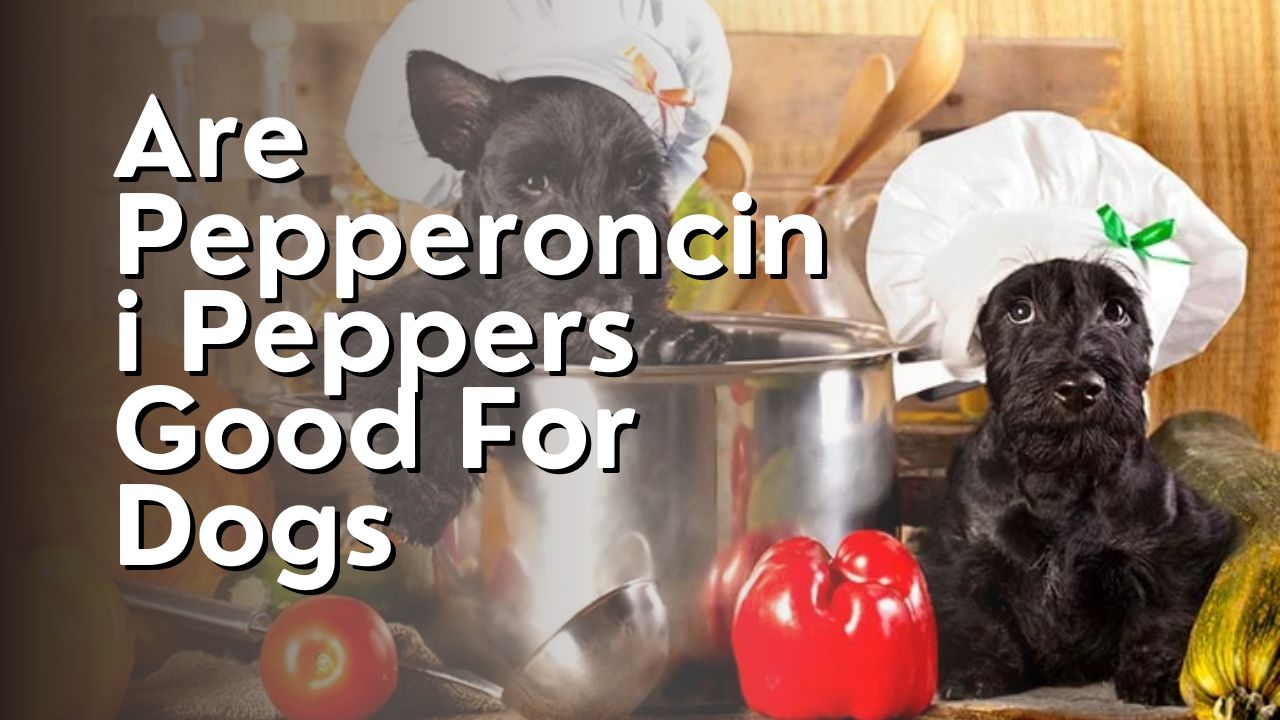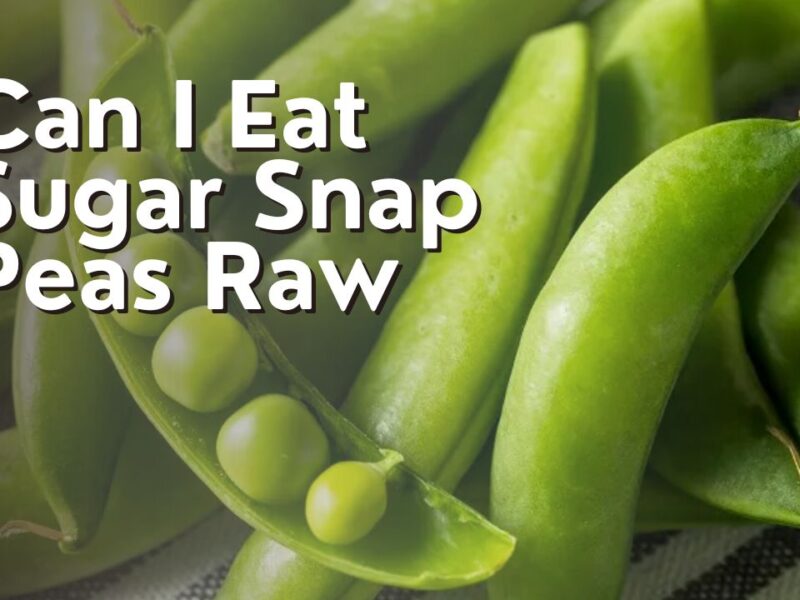Are pepperoncini peppers good for dogs? As a dog owner, I was curious to find out the answer to this question. Pepperoncini peppers are a popular ingredient in many dishes, and I often wondered if I could share them with my furry friend.
In my research, I discovered that there are potential risks involved in feeding pepperoncini peppers to dogs. Spicy foods can have adverse effects on their digestive systems, causing discomfort and other symptoms. It is important to be aware of the signs of pepperoncini pepper toxicity in dogs and to seek safer alternatives for them.
Consulting with a veterinarian before introducing new foods to your dog is always a wise decision. So, if you’re wondering about feeding pepperoncini peppers to your canine companion, join me as we explore the potential risks and safer options for our furry friends.
- The Potential Risks of Feeding Pepperoncini Peppers to Dogs
- The Effects of Spicy Foods on Dogs' Digestive Systems
- Common Symptoms of Pepperoncini Pepper Toxicity in Dogs
- Safer Alternatives to Pepperoncini Peppers for Dogs
- Consulting with a Veterinarian Before Introducing New Foods to Your Dog
- Frequently Asked Questions
- Conclusion
The Potential Risks of Feeding Pepperoncini Peppers to Dogs
If you’re thinking about giving your furry friend some pepperoncini peppers, you might want to think twice about the potential risks involved.
While pepperoncini peppers may seem harmless to us, they can actually be quite dangerous for dogs. One of the main risks is that pepperoncini peppers are spicy, and dogs have a much lower tolerance for spice than humans. Eating spicy foods can cause digestive issues for dogs, including stomach pain, diarrhea, and vomiting. This can be especially concerning for dogs with sensitive stomachs or pre-existing gastrointestinal conditions.
Additionally, pepperoncini peppers contain a compound called capsaicin, which can be toxic to dogs in large amounts. Capsaicin can cause irritation and inflammation in a dog’s mouth, throat, and digestive tract. In severe cases, it can even lead to difficulty breathing.
It’s also important to note that pepperoncini peppers are usually pickled in vinegar, which can be harmful to dogs in large quantities. Vinegar can cause upset stomach and lead to electrolyte imbalances.
So, even though pepperoncini peppers may be a tasty treat for us, it’s best to keep them away from our furry friends to ensure their health and well-being.

The Effects of Spicy Foods on Dogs’ Digestive Systems
Explore how feeding your furry friend spicy foods can impact their delicate digestive system. Spicy foods can cause various adverse effects on dogs, leading to discomfort and potential health issues. One common effect is stomach upset, which can manifest as vomiting, diarrhea, or both. The capsaicin compound found in spicy foods can irritate the lining of the stomach, causing inflammation and digestive distress. Additionally, dogs may experience excessive gas and abdominal pain, making them restless and uncomfortable.
When it comes to pepperoncini peppers, their spiciness can exacerbate these digestive issues. The heat from the peppers can intensify the irritation and inflammation in your dog’s stomach, leading to more severe symptoms. To illustrate the potential effects, refer to the table below:
| Effects of Spicy Foods on Dogs’ Digestive Systems |
|---|
| Stomach Upset |
| Vomiting |
| Diarrhea |
| Excessive Gas |
It is crucial to pay attention to your dog’s reaction to spicy foods and take immediate action if they show any signs of discomfort. As responsible pet owners, it is best to avoid feeding your furry friend spicy foods, including pepperoncini peppers, to ensure their digestive system stays healthy and happy.
Common Symptoms of Pepperoncini Pepper Toxicity in Dogs
To truly understand the potential harm that can befall your beloved four-legged companion, pay close attention to the common symptoms that may arise from the toxicity of pepperoncini peppers. These symptoms can serve as warning signs that your dog may have ingested too many of these spicy peppers.
Here are some common symptoms to look out for:
- Upset Stomach: Your dog may experience vomiting or diarrhea after consuming pepperoncini peppers. This is a clear indication that their digestive system is not handling the spiciness well.
- Excessive Drooling: If you notice your dog drooling more than usual, it could be a sign of pepperoncini pepper toxicity. The spiciness can irritate their mouth and cause excessive drooling.
- Lethargy: Pepperoncini pepper ingestion can make your furry friend feel tired and sluggish. If you see them lacking their usual energy, it could be due to the toxic effects of these peppers.
Remember, dogs have a sensitive digestive system, and spicy foods like pepperoncini peppers can cause discomfort and potential harm. It’s always best to consult your veterinarian if you suspect your dog has ingested these peppers.
Safer Alternatives to Pepperoncini Peppers for Dogs
Consider opting for milder alternatives that are safer for your canine companion to consume. While pepperoncini peppers can be harmful to dogs, there are other options that can provide similar flavors without the potential risks. Here are three safer alternatives to pepperoncini peppers for dogs:
| Alternative | Flavor Profile | Benefits |
|---|---|---|
| Bell peppers | Mild and sweet | Bell peppers are a great option for dogs. They are low in calories and packed with vitamins A and C, providing immune support. |
| Cucumbers | Refreshing | Cucumbers are hydrating and low in calories. They also contain vitamins K and C, promoting healthy bones and immune function. |
| Carrots | Crunchy and sweet | Carrots are a delicious treat for dogs. They are high in fiber and vitamin A, contributing to good digestion and eye health. |
By offering these alternatives, you can still provide your dog with tasty snacks while ensuring their safety. Remember to introduce new foods gradually and monitor your dog for any adverse reactions. It’s always best to consult with your veterinarian before introducing new foods into your dog’s diet.

Consulting with a Veterinarian Before Introducing New Foods to Your Dog
Before introducing any new foods to your furry friend, it’s important to consult with a veterinarian. Your vet will have the knowledge and expertise to guide you in making the best decisions for your dog’s diet. Here are five reasons why consulting with a veterinarian is crucial:
- Individualized Advice: Every dog is unique, with different dietary needs and sensitivities. A vet can provide personalized advice based on your dog’s specific requirements.
- Allergies and Intolerances: Some dogs may have allergies or intolerances to certain foods. A vet can help identify potential allergens and recommend suitable alternatives.
- Nutritional Balance: A balanced diet is essential for a dog’s overall health and well-being. A vet can ensure that any new food you introduce provides the necessary nutrients.
- Potential Health Risks: Certain foods can be harmful or toxic to dogs. A vet can help you avoid potentially dangerous foods and prevent any adverse effects.
- Weight Management: If your dog is overweight or underweight, a vet can help you choose the right foods to achieve and maintain a healthy weight.
By consulting with a veterinarian, you can make informed decisions about your dog’s diet and ensure their health and safety are always a top priority.
Frequently Asked Questions
Can dogs eat pepperoncini peppers in moderation?
Dogs can eat pepperoncini peppers in moderation, but it’s important to remove the seeds and stems. These peppers can cause digestive upset in some dogs, so it’s best to consult with a veterinarian before feeding them.
Are there any health benefits of feeding pepperoncini peppers to dogs?
Feeding pepperoncini peppers to dogs may provide health benefits. They are rich in vitamins A and C, which support immune function and promote healthy skin. However, moderation is key to avoid digestive issues.
What should I do if my dog accidentally consumes pepperoncini peppers?
If my dog accidentally consumes pepperoncini peppers, I should monitor him closely for any signs of discomfort or digestive issues. If symptoms worsen or persist, I would consult with a veterinarian for further guidance and treatment.
Can I feed my dog other types of spicy peppers instead of pepperoncini peppers?
I wouldn’t recommend feeding my dog any type of spicy peppers. Dogs have sensitive stomachs and spicy foods can cause digestive issues. It’s best to stick to dog-friendly foods.
How can I train my dog to avoid eating pepperoncini peppers if they are harmful to them?
To train my dog to avoid eating harmful pepperoncini peppers, I would use positive reinforcement techniques. I would reward them with treats and praise when they ignore the peppers, and redirect their attention to a safe and appropriate alternative.
Conclusion
In conclusion, I would advise against feeding pepperoncini peppers to dogs. These spicy peppers can have negative effects on a dog’s digestive system and potentially lead to toxicity. It’s always best to err on the side of caution when introducing new foods to your furry friend.
Instead, opt for safer alternatives that are specifically formulated for dogs. Consulting with a veterinarian is always a wise decision to ensure the health and well-being of your beloved pet.


